Three Mira Road men who somehow managed to escape a Chinese-run cyber racket in Laos, speak to mid-day about their ordeal—right from being lured and trafficked, to being forced into digital slavery
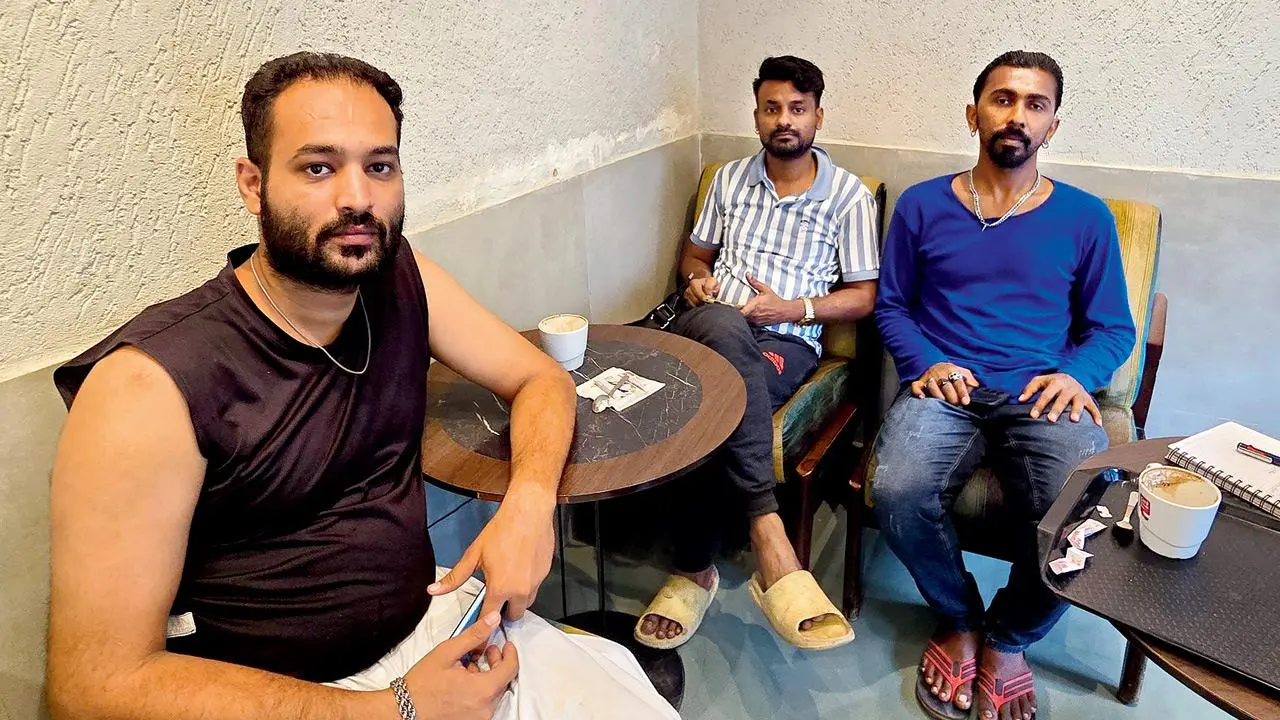
The trio (from left) of Sayed Zakir Abbas, Ismail Sayed and Shaban Salim had no offer letters when they flew to Bangkok. Pic/Diwakar Sharma
A promising overseas job opportunity turned into a horrifying ordeal for three Mira Road residents, who recently returned to India after escaping a brutal cybercrime syndicate in Laos. Stripped of their passports, dignity, health, and hope, the men now seek justice. The victims—a cab driver, a pest control technician, and a media graduate-turned-accountant—were lured into the scheme by childhood friends who had turned into agents for international human traffickers.
 Their Chinese boss who has allegedly been running a cybercrime hub in Laos. Pic/By Special Arrangement
Their Chinese boss who has allegedly been running a cybercrime hub in Laos. Pic/By Special Arrangement
The eyes of Sayed Zakir Abbas, 30, Shaban Salim, 25, and Ismail Sayed, 35, still carry the weight of sleepless nights, broken trust, and shattered dreams. They were promised high-paying call centre jobs in Southeast Asia by three traffickers—all residents of Mira Road. Once in Laos, they were handed over to a Chinese-run cybercrime racket.
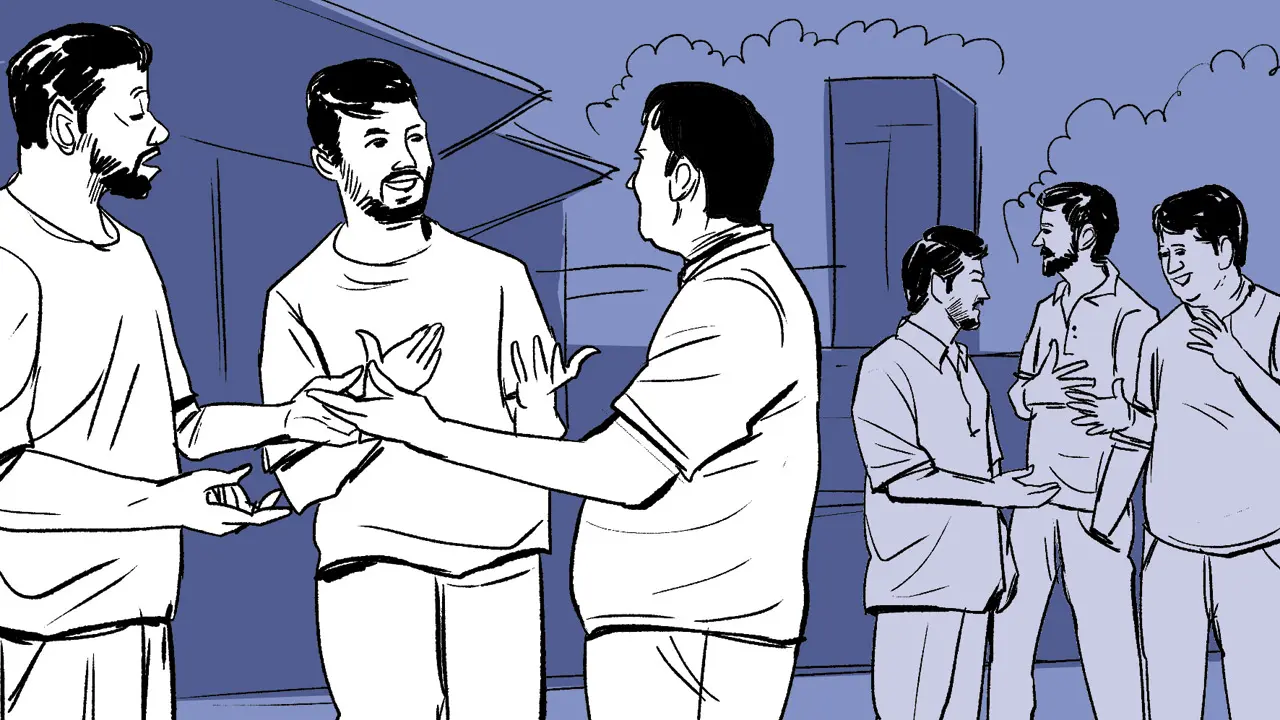 Childhood friends turned agents lured Mira Road job seekers with fake Laos call centre offers promising Rs 70,000/month
Childhood friends turned agents lured Mira Road job seekers with fake Laos call centre offers promising Rs 70,000/month
“We were sold for Rs 5 lakh each to Chinese handlers,” Abbas told mid-day. “They took our passports as soon as we crossed into Laos. That’s when the horror began.” The trio had no offer letters when they flew to Bangkok. Still, they believed in the promise of better lives abroad. But once in Laos, they were forced to work 16-hour shifts, fed food infested with hair, metal particles, and wires, and denied any medical aid. Their passports were confiscated, and they were held in guarded compounds under constant surveillance. “We were crammed into small rooms. The scam centre reeked of fear and despair,” said Salim.
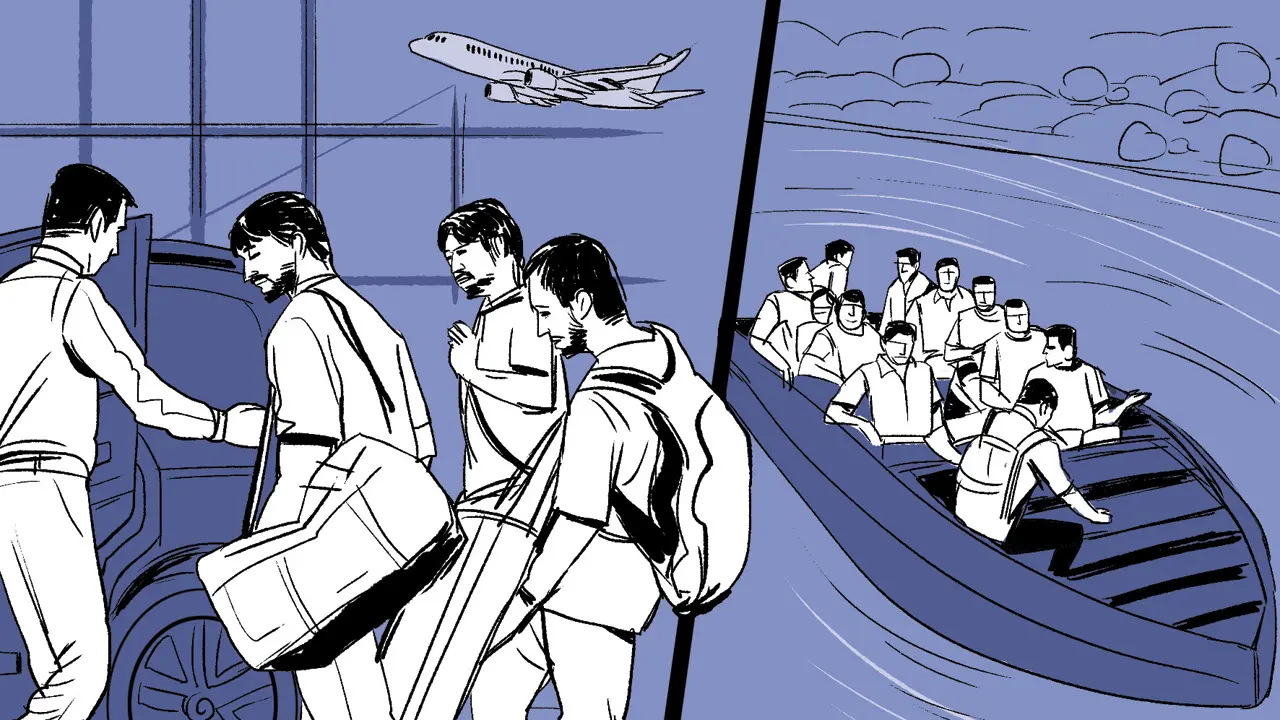
The trio flew to Bangkok, then travelled by road and boat to Laos, carrying only their belongings and phones
The men were coerced into operating “pig butchering scams,” targeting young Americans and Europeans using dating and investment apps. They were given iPhones with US and local SIM cards to carry out the digital fraud. In a daring escape on March 31, Abbas took advantage of a security lapse, stole 17 iPhones, and fled the compound into a nearby jungle. “There were no roads, no food, no shelter—just the hope of seeing my family again,” said Abbas, who had reached Laos on November 28, 2024.
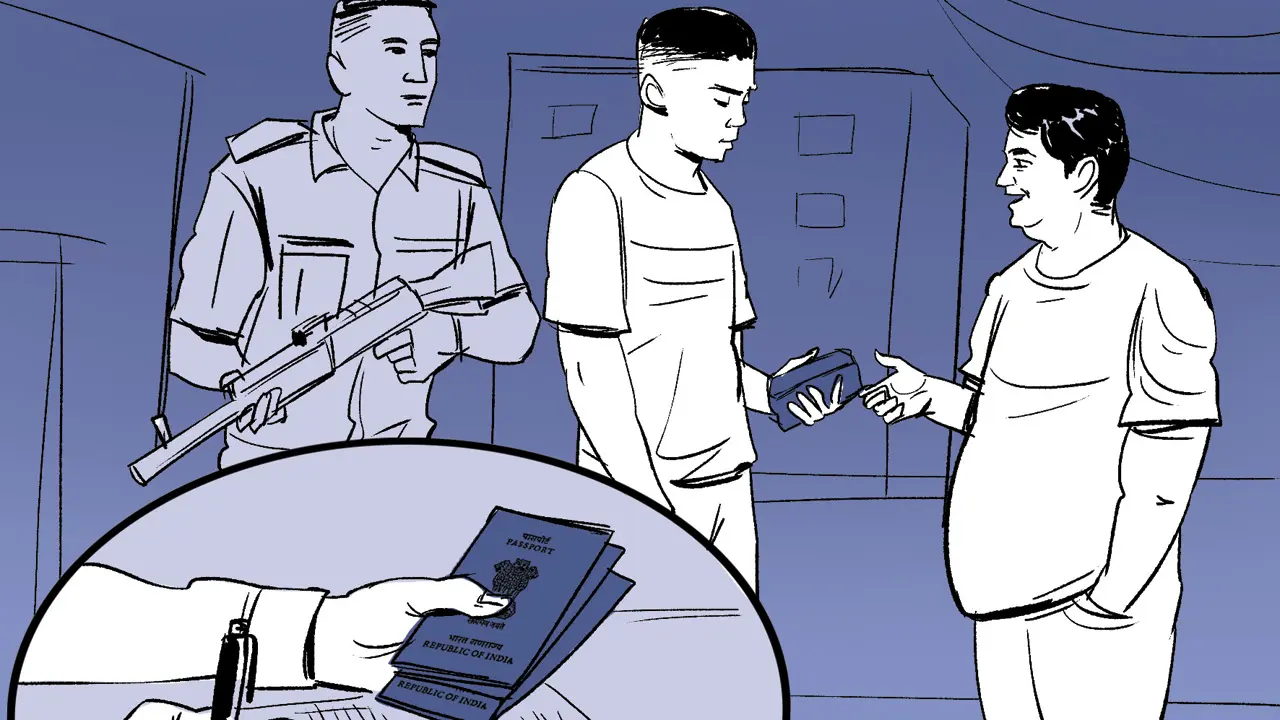
On arrival, a Chinese scammer with an armed guard seized their passports; he had paid Rs 5 lakh per victim
Declared “WANTED” by his Chinese boss, Chison, Abbas’s face appeared on fake posters circulated to local authorities, accusing him of drug trafficking. Despite this, his documents were returned, and his family was paid Rs 70,000 to keep quiet. He finally returned to Mumbai on April 9. “It was during a call with my father on Eid that I broke down. That moment gave me the strength to run,” Abbas said.
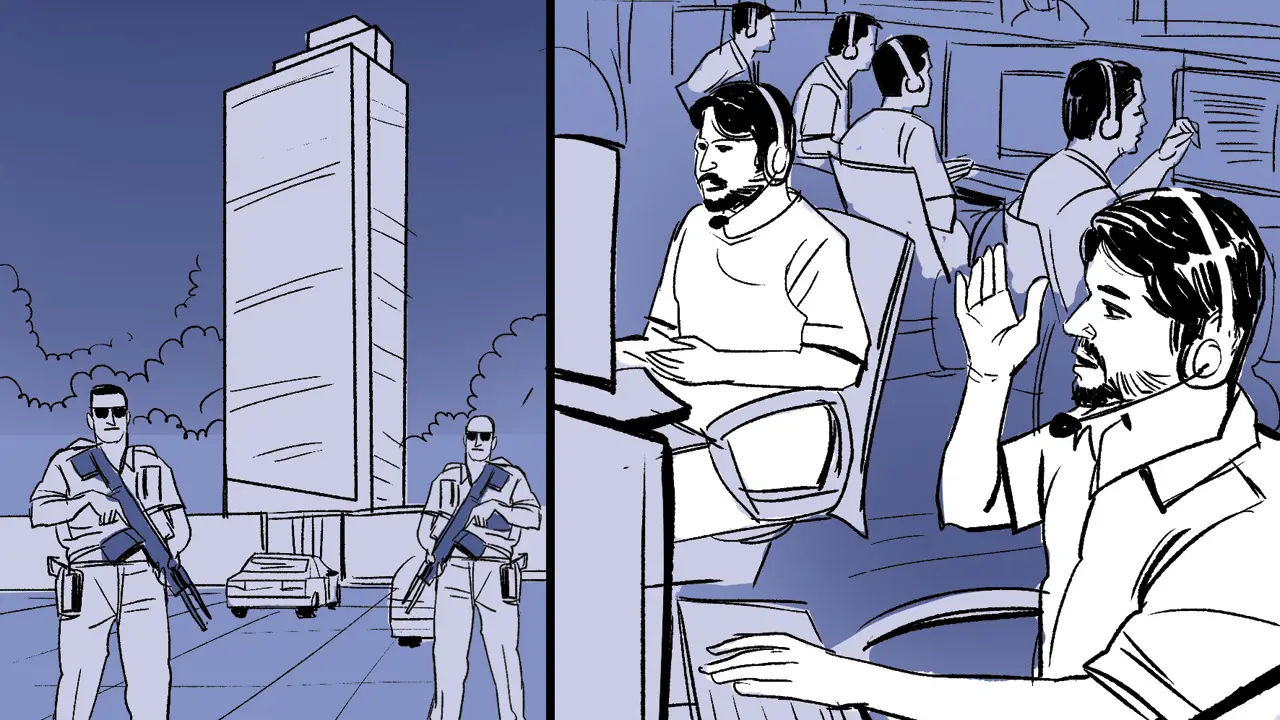
They were trained in guarded compounds to scam wealthy foreigners using phones, headsets, and scripts
Ismail Sayed, who studied only up to class 6 in an Urdu school, said, “I told the agent I didn’t even know how to use a computer. But he said the job was easy and well-paying.” After realising the fraud, Ismail staged a week-long hunger strike in March to get his passport back. He returned to India via Kolkata on April 1, thanks to friends who helped fund his journey.
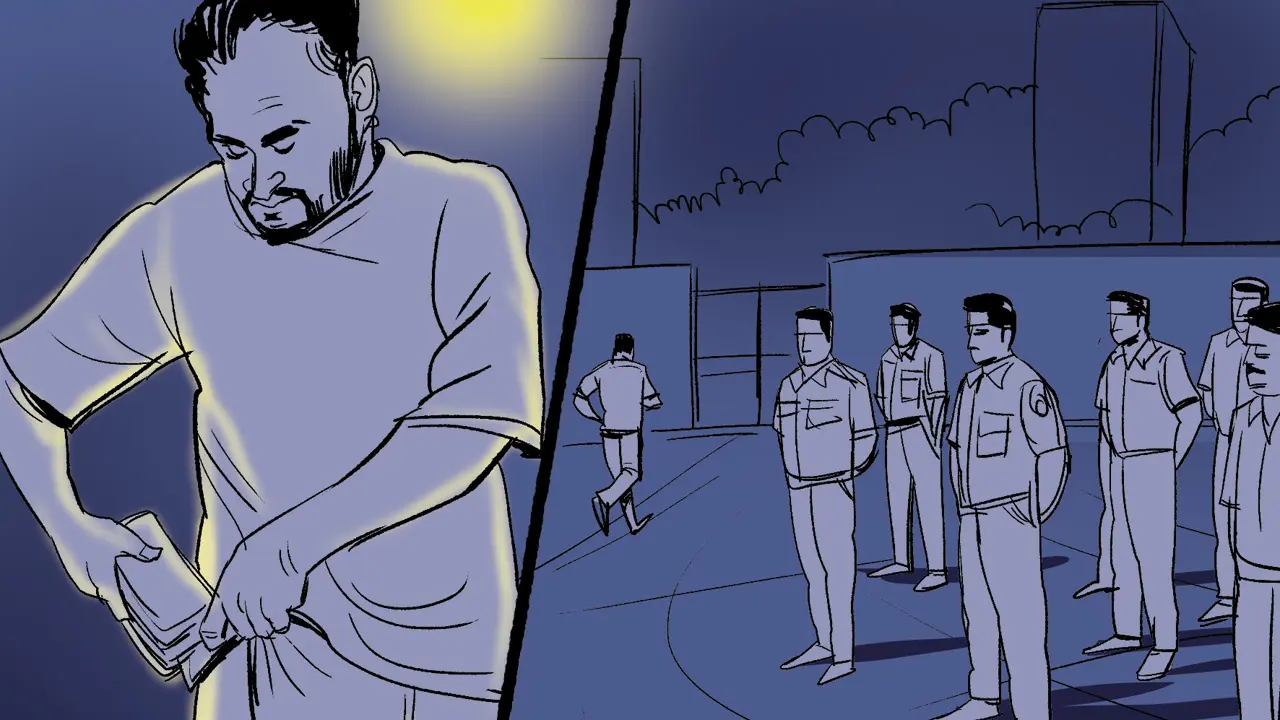
One victim escaped by pocketing 17 iPhones during a shift change, quietly slipping out of the compound
Salim, the third escapee, vomited blood due to stress and malnutrition. “They didn’t care. I begged for help. They told me I’d have to pay for any treatment, even though they never paid us salaries.” He finally walked away from the scam centre, surviving on fruit donated by a local vendor and sleeping on footpaths for 15 days before returning to Mumbai on April 30.
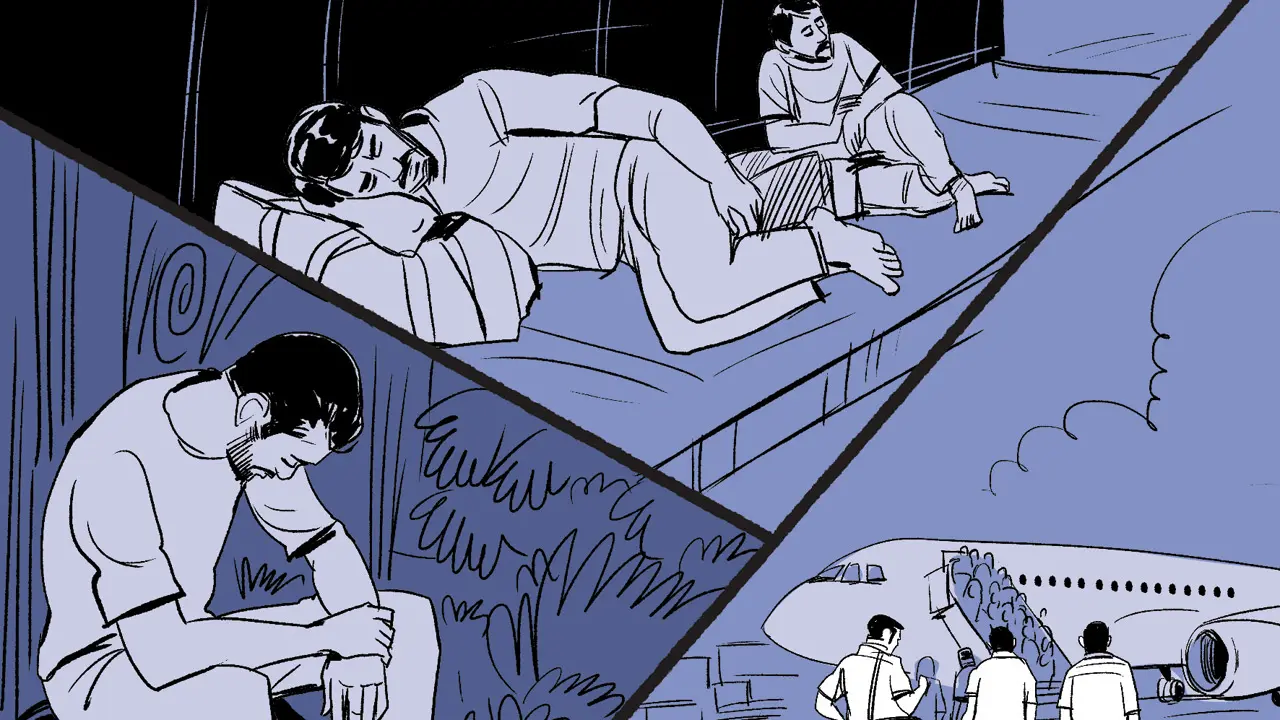 He wandered barefoot through the jungle, negotiated his dues, and returned. Others escaped, citing health issues or hunger strikes. Trio is now back in Mumbai, traumatised. illustrations/Uday Mohite
He wandered barefoot through the jungle, negotiated his dues, and returned. Others escaped, citing health issues or hunger strikes. Trio is now back in Mumbai, traumatised. illustrations/Uday Mohite
The duo Salim and Ismail, along with another friend, Lucky Ali, were trafficked through a well-coordinated route: flown to Bangkok, driven to Chiang Rai, and smuggled across a river into Laos in November last year. Lucky Ali is still stuck in Laos. “I didn’t even want to go abroad,” said Ismail. “But I trusted my childhood friend, and he sold me.”
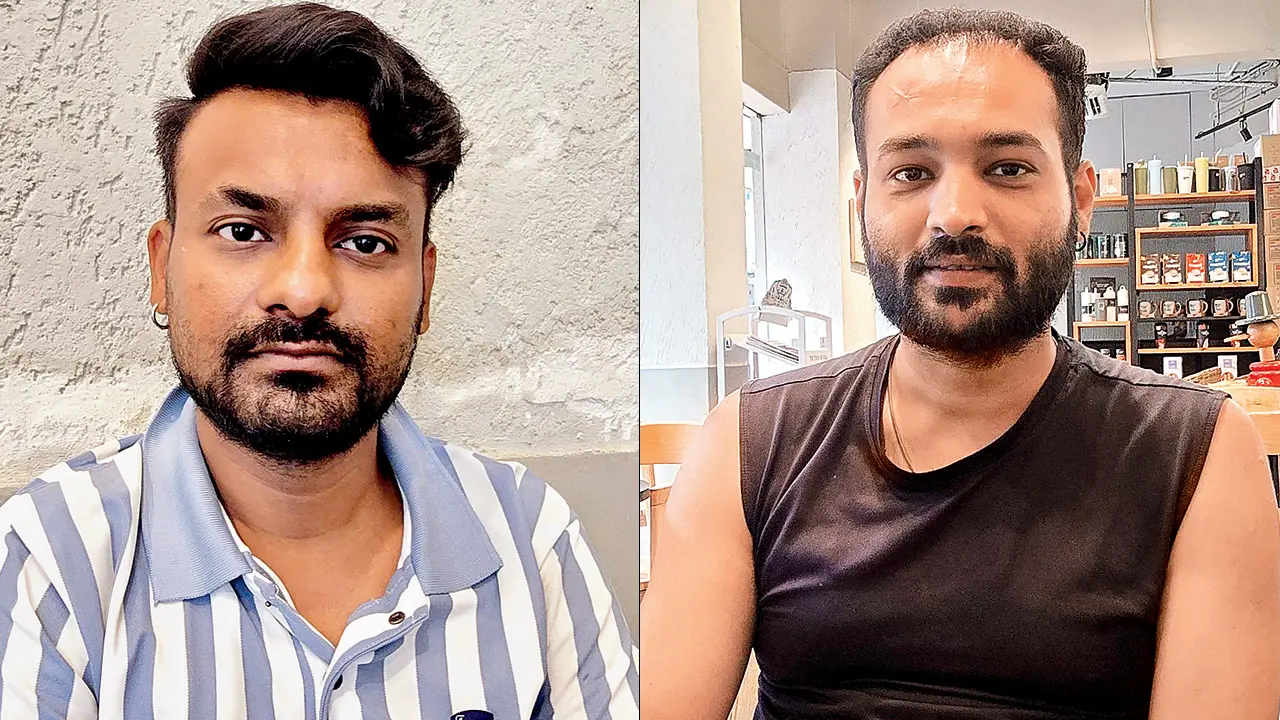
Ismail Sayed; (right) Sayed Zakir Abbas. Pics/Diwakar Sharma
They estimate hundreds of Indians are still trapped in Laos, many without basic digital skills, enslaved in scam centres guarded like military installations. “These agents should be hanged,” Abbas said. “They betrayed our trust and almost got us killed. I’m collecting evidence. I want justice.” Even as the trauma lingers, the three men are determined to rebuild their lives—and warn others never to fall for such promises again.
 Subscribe today by clicking the link and stay updated with the latest news!" Click here!
Subscribe today by clicking the link and stay updated with the latest news!" Click here!








